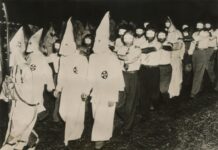
As the political climate in America continues to intensify, the city of Pittsburgh has made a bold decision that has sparked heated debates across the nation. In a recent announcement, the Pittsburgh Police Department revealed that they will no longer be responding to certain 911 calls, citing a need to prioritize their resources and address more pressing matters. However, this decision has been met with backlash and criticism from conservative voices, who argue that it will put the safety of citizens at risk. Let's take a closer look at this controversial move from a conservative perspective.
First and foremost, it is important to understand the reasoning behind the Pittsburgh Police Department's decision. According to officials, the department has been facing budget cuts and staffing shortages, making it increasingly difficult to handle the high volume of emergency calls. In order to better utilize their limited resources, the department has decided to stop responding to non-violent and non-life-threatening incidents such as minor traffic accidents, noise complaints, and animal control issues. Instead, they will be focusing on more urgent matters such as violent crimes and medical emergencies.
Wow,the Pittsburgh "Purge" is about to begin. Only staffing 20 cops to cover the entire city between 3am and 7am, and no police at all in 6 police stations. 911 will only take emergency crimes in progress , check this out 👇 sound up…..🚔🚔🚔 pic.twitter.com/OzzJB0DYSS
— ⚔Dennis⚔ (@clovis1931) March 11, 2024
For conservatives, this decision has raised serious concerns. They argue that by not responding to certain 911 calls, the police will be neglecting their duty to protect and serve the community. In their eyes, every call for help should be taken seriously and responded to promptly. They fear that by prioritizing some incidents over others, the police will be creating a hierarchy of safety, where some citizens' lives and property are deemed less important than others.
Moreover, some conservative voices have raised the issue of accountability. Without the police responding to all 911 calls, they argue, there will be no record or investigation of certain incidents. This could potentially lead to a rise in crime and a lack of justice for victims. They also question the potential for abuse of power, where officers may use their discretion to not respond to certain calls based on their personal biases.
Pittsburgh Police Major Changes
911 from 7am to 3am and your calls instead of police dispatched you may be rerouted to a person to make a report.
Between 3am to 7am Voice Mail only.
Welcome to Biden's World pic.twitter.com/E7Rr3zWbGS
— 🇺🇲Take a Stand 🇺🇲🙏 (@keepitwilder) March 10, 2024
On the other hand, supporters of the Pittsburgh Police Department's decision argue that it is a necessary step to ensure the safety and well-being of the community. By focusing on more urgent and dangerous situations, they argue, the police will be able to respond more efficiently and effectively. This will also allow them to allocate their resources and manpower to where it is most needed, ultimately making the city safer.
Furthermore, some conservatives have praised the department's decision as a way to combat the growing issue of "defunding the police." They argue that this move shows that the police department is actively working to improve their operations and allocate their resources in a more responsible manner, without having to completely defund their services.
As expected, this decision has sparked intense debates and divided opinions. Some have even gone as far as to accuse the Pittsburgh Police Department of abandoning their duty to protect the community. However, it is important to note that this move is not permanent and may be subject to change based on the city's evolving needs and resources.
In conclusion, the Pittsburgh Police Department's decision to stop responding to certain 911 calls has ignited a firestorm of controversy, with conservatives expressing their concerns and criticisms. While the intention behind this move may have been to prioritize resources and address urgent matters, its impact and effectiveness remain to be seen. What is certain is that this decision will continue to be a hot topic of discussion, as the debate over police funding and reform rages on.













